Why Global Investors Are Betting Big on Morocco’s Green Energy?
)
In an era where sustainability is reshaping global priorities, Morocco has positioned itself as one of the most dynamic players in the energy transition. From sprawling solar farms on the edge of the Sahara to vast wind projects harnessing Atlantic gusts, the Kingdom is transforming from a traditional energy importer into a global green energy hub.
The rise of Morocco's green energy is not just about environmental responsibility. It is a deliberate strategy to attract international investment, strengthen economic resilience, and cement Morocco’s role as a trusted partner in the global shift away from fossil fuels.
So, why are investors from Europe, the Gulf, and beyond pouring capital into Morocco’s renewable energy sector? The answer lies in the Kingdom’s unique mix of geography, ambition, and execution.
Morocco’s Green Energy Transformation
Two decades ago, Morocco was almost entirely dependent on imported fossil fuels. Today, it generates nearly 40% of its electricity from renewables, with the aim of reaching 52% by 2030. Few emerging economies have made such dramatic progress.
This transformation rests on three core pillars:
-
Solar Power: The Noor Ouarzazate complex, one of the largest concentrated solar plants on the planet, symbolises Morocco’s global leadership in solar energy.
-
Wind Energy: From Tangier to Tarfaya, wind farms now line Morocco’s Atlantic coastline, turning natural gusts into clean power.
-
Hydropower: Modernised dams continue to play a role in diversifying Morocco’s renewable energy mix and ensuring long-term supply stability.
For global investors, Morocco offers not just potential but proof: the country is meeting its targets and delivering results.
Why Global Investors Are Betting Big?
1. Strategic Location at the Crossroads
Morocco’s geography is its first advantage. Positioned between Europe, Africa, and the Middle East, it connects continents and markets. Through undersea power cables linking Morocco to Spain, renewable electricity can flow directly into the European grid, an asset at a time when Europe urgently seeks cleaner energy imports.
2. Ambitious National Commitments
Morocco’s National Energy Strategy is one of the boldest in the Global South. Backed by strong government support, it prioritises renewables, energy efficiency, and decarbonisation. This policy clarity reassures investors that Morocco is committed to long-term stability in its green energy agenda.
3. Expanding Project Pipeline
The Kingdom continues to deliver mega-projects: vast solar arrays, expansive wind farms, and most recently, a surge of green hydrogen initiatives. For institutional investors and sovereign funds, this represents a consistent flow of bankable opportunities.
4. The Promise of Green Hydrogen
Green hydrogen is Morocco’s next frontier, and perhaps the strongest magnet for foreign capital. With exceptional solar and wind resources, Morocco is ideally placed to produce hydrogen through renewable-powered electrolysis. Already, Germany, the EU, and Gulf partners have signalled heavy interest, positioning Morocco as a future leader in the global hydrogen trade.
5. A Pro-Business, Investment-Friendly Climate
Morocco has long been a champion of international trade and investment. With world-class infrastructure, competitive energy costs, and preferential trade agreements with the EU, US, and Africa, the Kingdom offers investors access to multiple regions through a single hub.
Global Partnerships Driving Growth
Morocco’s energy transition has been powered by strong international partnerships. Investors are not just funding projects, they are working hand-in-hand with Morocco to shape a greener global economy.
-
European Union: The EU has made Morocco a central partner in its Green Deal, with energy cooperation and hydrogen export agreements already in place.
-
Germany: Through the Morocco-Germany hydrogen alliance, German companies are investing in pilot projects that could become global benchmarks.
-
Gulf States: Sovereign funds from the UAE and Saudi Arabia are backing Morocco’s renewables as part of their own diversification under Vision 2030.
-
International Institutions: The World Bank, African Development Bank, and IRENA have provided financing and expertise, reducing risks and enhancing Morocco’s credibility.
Such partnerships reinforce Morocco’s reputation as a stable, trusted investment destination.
Morocco Green Energy as a Catalyst for Economic Diversification
Sustainability in Morocco is not pursued in isolation, it is integral to the Kingdom’s broader development agenda. The green energy sector delivers value on multiple fronts:
-
Cutting Import Dependence: Reducing reliance on costly fossil fuel imports frees national resources for infrastructure and social investment.
-
Driving Exports: Clean electricity and hydrogen exports are opening new revenue streams with Europe and beyond.
-
Creating Jobs: Large-scale projects generate thousands of skilled and semi-skilled jobs, strengthening Morocco’s labour market.
-
Encouraging Innovation: Technology transfer from global partnerships brings advanced know-how into Morocco’s industrial ecosystem.
Together, these factors support Morocco’s vision of becoming not just an energy leader but a diversified, competitive economy.
Challenges Morocco Must Navigate
No transition comes without hurdles. To sustain investor confidence, Morocco must address:
-
Financing Scale: Multi-billion-dollar projects demand innovative public-private financing and continued global trust.
-
Grid Upgrades: To absorb increasing renewable input, Morocco’s grid must be modernised and energy storage expanded.
-
Water Scarcity: Hydrogen electrolysis requires significant water use, making desalination and sustainable water management critical.
-
Global Competition: Other countries, from Chile to Australia, are also competing to dominate hydrogen markets. Morocco must maintain speed and reliability to stand out.
Future Outlook: Morocco as a Global Energy Hub
By 2030, Morocco could firmly establish itself as:
-
A top renewable electricity exporter to Europe.
-
A regional hydrogen production hub.
-
A magnet for sustainable investment across Africa.
With global urgency around climate change, international capital is flowing toward dependable, future-ready partners. Morocco, with its geographic edge, political stability, and track record of delivery, is poised to capture a significant share of this momentum.
Conclusion
Global investors are betting big on Morocco green energy because the Kingdom has proven it is not just another emerging market, it is a reliable partner with ambitious goals and tangible results.
From solar mega-projects to the dawn of the hydrogen era, Morocco offers investors more than financial returns. It offers a stake in the global energy transition itself. In a world where sustainability defines competitiveness, Morocco stands tall as one of the most promising green energy leaders.
The question is no longer why Morocco, but how soon investors can be part of its journey.
FAQs
Q1: Why is Morocco considered a leader in green energy?
Ans: Morocco has invested extensively in solar, wind, and hydropower, achieving 40% renewable electricity and targeting 52% by 2030.
Q2: What makes Morocco attractive to global investors?
Ans: Its strategic location, ambitious policy commitments, stable investment climate, and green hydrogen roadmap.
Q3: How central is green hydrogen to Morocco’s future?
Ans: It is a cornerstone of Morocco’s strategy, with exports already being negotiated with Europe and Germany.
Q4: What role do partnerships play?
Ans: Partnerships with the EU, Germany, Gulf sovereign funds, and multilateral banks bring capital, expertise, and credibility.
Q5: What challenges does Morocco face?
Ans: Financing mega-projects, upgrading grids, managing water use, and competing globally in hydrogen leadership.


